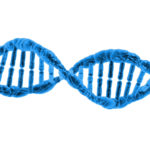Kenneth Kemp’s 2020 book, The War That Never Was: Evolution and Christian Theology, is a historical treatment of evolution and Christian theology. In it, Kemp—a professor of philosophy at the University of St. Thomas in St. Paul, Minnesota—attempts to counter the commonly believed “Warfare Thesis,” which asserts that religion and science are essentially opposed. That thesis originated with two highly influential works: John William Draper, History of the Conflict between Religion and Science (1874); and Andrew Dickson White, History of the Warfare of Science with Theology in Christendom (1896). Kemp’s outstanding book marshals a wide array of relevant facts, makes careful but powerful inferences from those facts, and, throughout, presents crucial distinctions for thinking about the relation of evolution and theology.
According to Kemp, the paleoetiological sciences of historical geology and evolutionary biology have not been engaged in a war against theology or religion. On the contrary, Kemp argues, if creation by an omnipotent God is possible, there is no reason to construe such creation as incompatible with historical geology and evolution. Kemp notes that there was strong conflict within science about natural selection until the 1930s, and he allows that there have been both naturalist and religious extremists, men like Thomas Huxley and William Jennings Bryan, or more recently Richard Dawkins and Henry Morris. But rather than a war, these spats typically began with a philosophical assault on religion and then an attempted in-kind response. Naturalism is a philosophy; it is not science. Kemp carefully measures the compatibility of various forms of naturalism and Christianity.
In a very helpful chapter, “Christianity, Geology, and Cosmology before 1859,” Kemp lays out a detailed account of how nineteenth-century (and earlier) geological discoveries went beyond the biblical Hexaemeron, and how various Christians responded. Kemp critiques Draper and White both for their historical errors and for the one-sidedness with which they focus on Christian opposition to scientific developments while ignoring the Christian support that those same developments received. Against the Warfare Thesis, Kemp compiles considerable evidence to show the very wide variety of theological engagements of the rapidly growing field of geology. As Kemp concludes, the evidence shows “a conflict between old ideas and new ideas, and indeed between new ideas and other new ideas. What they do not show us is anything that can be characterized, without vitiating qualifications, as a war between science and theology in Christendom.”
As Kemp proceeds through “Christianity and Evolution in the Nineteenth Century,” and then a first and second curriculum war, he fortifies his thesis by reviewing the history of the Huxley-Wilberforce exchange, the Scopes Trial, and recent controversies about bringing creation-science and Intelligent Design Theory into public school classrooms. Moreover, he shows that quite often, conflicts, especially those about evolution, were within a given Protestant denomination (and that such conflicts were largely avoided in Catholicism). But repeatedly, he shows that the overall relationship between science and theology is not one of warfare. There were and still are too many Christians who have embraced both scientific discoveries and Christian faith for the Warfare Thesis to be credible.
Start your day with Public Discourse
Sign up and get our daily essays sent straight to your inbox.In this and other writings, Kemp is at the forefront of contemporary interpreters of evolution and Christian faith.













